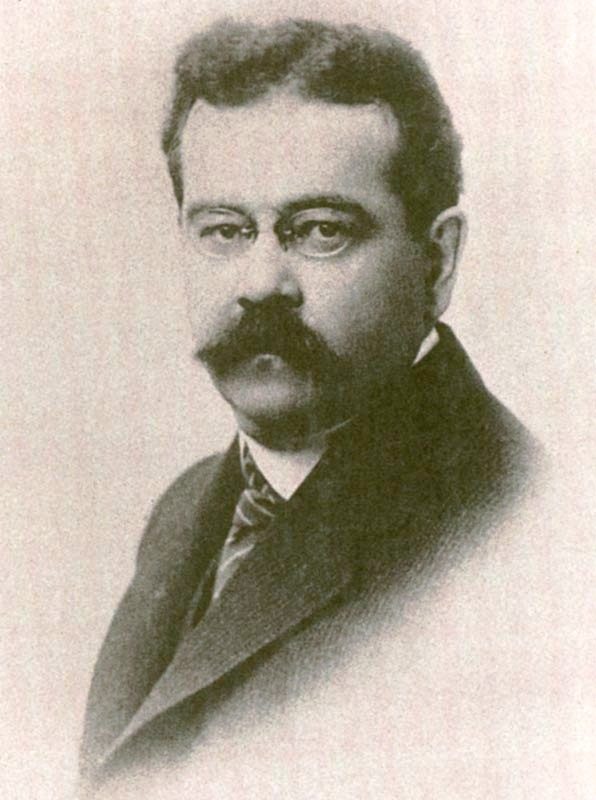Ch. 13 http://www.resologist.net/talent13.htm
Wild Talents (1932)
Charles Fort: Frases em inglês
Fonte: The Book of The Damned (1919), Ch. 1, part 4 at resologist.net
“If there is an underlying oneness of all things, it does not matter where we begin”
Pt 1, Ch. 1 http://www.resologist.net/lo101.htm
Lo! (1931)
Contexto: If there is an underlying oneness of all things, it does not matter where we begin, whether with stars, or laws of supply and demand, or frogs, or Napoleon Bonaparte. One measures a circle, beginning anywhere.
“My liveliest interest is not so much in things, as in relations of things.”
Ch. 2 http://www.resologist.net/talent02.htm
Wild Talents (1932)
Contexto: My liveliest interest is not so much in things, as in relations of things. I have spent much time thinking about the alleged pseudo-relations that are called coincidences. What if some of them should not be coincidences?
Pt 1, Ch. 4 http://www.resologist.net/lo104.htm
Lo! (1931)
Contexto: If human thought is a growth, like all other growths, its logic is without foundation of its own, and is only the adjusting constructiveness of all other growing things. A tree can not find out, as it were, how to blossom, until comes blossom-time. A social growth cannot find out the use of steam engines, until comes steam-engine-time. For whatever is supposed to be meant by progress, there is no need in human minds for standards of their own: this is in the sense that no part of a growing plant needs guidance of its own devising, nor special knowledge of its own as to how to become a leaf or a root. It needs no base of its own, because the relative wholeness of the plant is relative baseness to its parts. At the same time, in the midst of this theory of submergence, I do not accept that human minds are absolute nonentities, just as I do not accept that a leaf, or a root, of a plant, though so dependent upon a main body, and so clearly only a part, is absolutely without something of an individualizing touch of its own.
It is the problem of continuity-discontinuity, which perhaps I shall have to take up sometime.
Ch. 27 http://www.resologist.net/talent27.htm
Wild Talents (1932)
Contexto: My general expression is that all human beings who can do anything; and dogs that track unseen quarry, and homing pigeons, and bird-charming snakes, and caterpillars who transform into butterflies, are magicians. … Considering modern data, it is likely that many of the fakirs of the past, who are now known as saints, did, or to some degree did, perform the miracles that have been attributed to them. Miracles, or stunts, that were in accord with the dominant power of the period were fostered, and miracles that conflicted with, or that did not contribute to, the glory of the Church, were discouraged, or were savagely suppressed. There could be no development of mechanical, chemical, or electric miracles —
And that, in the succeeding age of Materialism — or call it the Industrial Era — there is the same state of subservience to a dominant, so that young men are trained to the glory of the job, and dream and invent in fields that are likely to interest stockholders, and are schooled into thinking that all magics, except their own industrial magics, are fakes, superstitions, or newspaper yarns.
Fonte: The Book of The Damned (1919), Ch. 1, part 4 at resologist.net
Fonte: The Book of The Damned (1919), Ch. 1, part 2 at resologist.net
Ch. 1, part 1 at resologist.net http://www.resologist.net/damn01.htm Ch. 1 at sacred-texts.com http://www.sacred-texts.com/fort/damn/damn01.htm
The Book of The Damned (1919)
“The fate of all explanation is to close one door only to have another fly wide open.”
Fonte: The Book of The Damned (1919), Ch. 3, part 2 at resologist.net
Fonte: The Book of The Damned (1919), Ch. 9, part 1 at resologist.net
Fonte: The Book of The Damned (1919), Ch. 12 at resologist.net
Darwinism:
That survivors survive.
Fonte: The Book of The Damned (1919), Ch. 3, part 1 at resologist.net
“The outrageous is the reasonable, if introduced politely.”
Fonte: The Book of The Damned (1919), Ch. 2, part 2 at resologist.net
Pt 1, Ch. 3 http://www.resologist.net/lo103.htm; part of this has sometimes been misquoted as: "I cannot accept that the products of the mind are subject-matter for belief."
Lo! (1931)
Fonte: The Book of The Damned (1919), Ch. 5, part 1 at resologist.net
Ch. 22 http://www.resologist.net/talent22.htm; sometimes paraphrased "I can conceive of nothing, in religion, science or philosophy, that is anything more than the proper thing to wear, for a while."
Wild Talents (1932)
Ch. 6 http://www.resologist.net/talent06.htm
Wild Talents (1932)
Fonte: The Book of The Damned (1919), Ch. 11 at resologist.net Ch. 11 at sacred-texts.com http://www.sacred-texts.com/fort/damn/damn11.htm
Speaking of a dog's homing skills, in Ch. 27
Wild Talents (1932)
Ch. 4 http://www.resologist.net/talent04.htm
Wild Talents (1932)
“If there is a universal mind, must it be sane?”
This has become widely attributed to Fort, but originates with Damon Knight, who in Charles Fort : Prophet of the Unexplained (1970) used the expression to sum up the nature of some of Fort's ideas or inquiries.
Misattributed
Fonte: The Book of The Damned (1919), Ch. 1, part 9 at resologist.net
